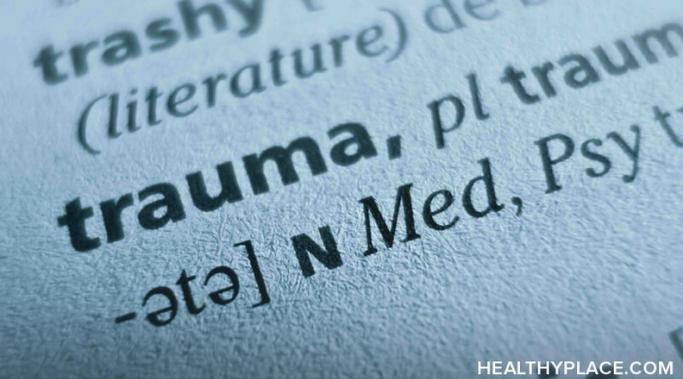Back in February, I wrote a post called "Are You Sensitizing Your Amygdala?", which was all about how your amygdala (the instinctual threat center of your brain) gets highly sensitized in PTSD and then finds and seeks threat constantly - even when there really isn't anything to feel threatened by. Recent advances in neuroscience have proven that while the amygdala changes to a sort of hyper-function in PTSD, it can change again in recovery.
PTSD Symptoms
You decide you want to heal from PTSD. You've had enough of living with high anxiety, nightmares, depression, emotional mood swings, the feeling that just stepping out of your house brings on an avalanche of overstimulation. So you pull up your bootstraps, tighten your belt, strap yourself in and take the plunge: You reach out for help, receive your diagnosis, educate yourself about treatment options, choose one, find the right practitioner, start your sessions and..... find yourself full of all kinds of contradictory feelings.
When we talk about trauma and PTSD, we often talk about adults. Today, I'm starting a two-part series that focuses on children. How kids experience, process and integrate trauma happens very differently from adults for obvious reasons.
When you see a child acting out and misbehaving, or an adult who seems unable to focus, connect or control emotions, how often do think to yourself, "Hmmm, I wonder if there's trauma in that person's background..." More often than not we just blame and feel abused and/or frustrated by such behaviors - even when they're our own.
Understanding the link between childhood trauma and negative behavior patterns can be critical to treating them.
Trauma affects you to a degree, that's a given. But can you choose how trauma affects you? On Monday, our nation was faced, yet again, with a staggering attack in the midst of one of the most celebrated and community oriented events in Boston every year, The Boston Marathon. Faced with our constant vulnerability, it can be tough to learn to live in a world where you can do your best to be safe -- and still have zero guarantees.
What do you do when you don't know what to do? Last week, on my radio show, I interviewed Ashley Lambert-Wise, founder of BattlingBare.org, a non-profit whose mission is to raise awareness for PTSD and TBI (Traumatic Brain Injury) in the military.
As someone struggling with PTSD, you've probably had a nightmare or two that evokes either your direct traumatic experience or the feelings that went along with it.
Why do we have nightmares? What is their purpose? Is it possible to get them to stop?
There is a relationship between PTSD and OCD, but sometimes the obsessive-compulsive behaviors sneak up on you and so it's not so obvious. Have you noticed, since your trauma, that you have new, idiosyncratic behaviors, even ones that don't make sense? Do you clean (yourself or your home) obsessively? Does everything suddenly have to be perfect?
Following a trauma, it's normal for your behavior to change in response to the new experience you've had. The question is, how do you move past that?
I have a client (we'll call him A.) who said to me yesterday, about an action he needs to take to move forward, "I just don't want to do it. It's too painful, so I avoid it."
While avoidance is typical in PTSD recovery here's the problem: Nothing in recovery happens unless you make it happen. So what will happen if you continue to avoid? Nothing.
What to do when PTSD avoidance grounds your progress to a halt?
If you live with PTSD, then you definitely have had your share of angry outbursts. How could you not? Your fuse is small, your triggers large and your ability to go with the flow went out the window the day your trauma(s) occurred.
Is there hope for you to proactively manage your anger? You bet!
The majority of survivors begin PTSD recovery in traditional talk therapy. It's a natural place to start. As a society, we're very in tune with 'therapy' and the idea of talking to a professional when something is wrong emotionally and we don't know how to fix it. But is talk therapy really effective in healing PTSD? The answer is, NO. Here's why...







